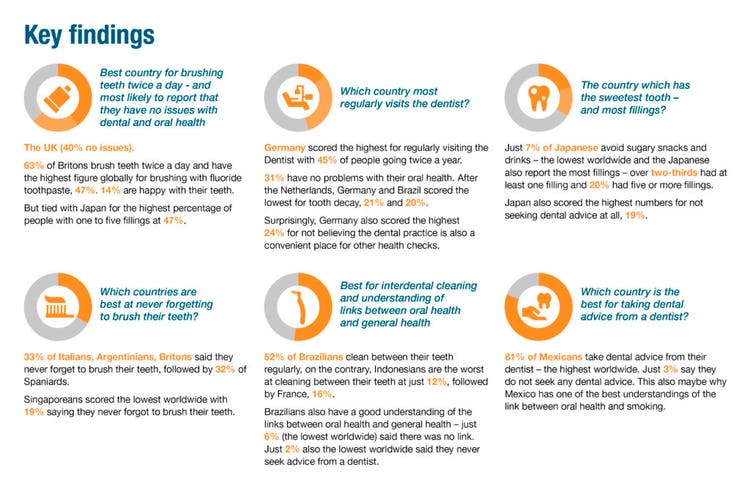How has the Covid-19 pandemic impacted oral health?|Global Healthy Thinking Report 2021
September 14, 2021
As we see our lives get used to the new normal, vaccination rates increase worldwide and restrictions loosen up, we also get to review the first data of the impact the Covid-19 pandemic has had on oral health and social communication.
According to the Global Healthy Thinking Report 2021, the largest consumer awareness survey to date with over 15,000 people interviewed across 15 countries worldwide, the pandemic has definitely had an impact on dental care, but it changes dramatically depending on the region and its restrictions.

Most affected countries by the Covid-19 pandemic – Global Healthy Thinking Report 2021
Whilst the pandemic has not been good for dental care globally, being locked in at home has made some people more aware of the state of their oral health and encouraged them to improve it, as a result, 45% of Indonesians are now cleaning their teeth more regularly and 34% of Thai people are now mouth-washing more regularly. But, what about the lack of social interaction during the pandemic?
Why is communication important to understanding oral health?
Social isolation and lack of oral communication is a factor in poor oral health and can contribute to oral frailty as we become older, the reduction in oral function. To prevent “oral frailty”, it’s important to 1: constantly maintain a clean oral environment, and 2: maintain your oral functions. This means removing dental plaque via appropriate brushing and periodic dental examinations, and adopting positive habits like determining a set time every day to conduct oral mouth exercises, such as while bathing or after brushing teeth. But a lack of face-to-face communication also has a large and direct impact on quality of life. These social interactions – having healthy relationships with family and friends are arguably even the most important thing to maintain a good quality of life. Countries that have seen a major impact on the ability to have verbal conversations throughout the pandemic could be at risk of greater oral frailty, amongst the older generations particularly.
These are the main communication changes during the pandemic, bringing to light big differences between the most and least isolated countries depending on their restrictions:
Mexico has the highest percentage of those having no face-to-face conversations (24%).
• Mexico also has the greatest percentage of people spending more time speaking on the phone/video call (73%) and more time on social media (82%).
• In Japan, 23% only have full conversations for work.
• In Brazil, 67% only have full conversations with household/family.
Most isolated
• Mexico – 24%, Argentina & UK – 19%, Spain – 17%.
• 77% of Italians and Indonesians say they are speaking to people in person less.
Least isolated
• China – 3%, Thailand – 6%.
• There is a large gap between the European countries surveyed – people in the Netherlands, France, and Germany were largely less affected by changes in face-to-face communication than people in the UK, Spain, and Italy.
• Only 45% of Dutch respondents say they spend less time speaking to people in person, and 27% are speaking to people in person more.
A global snapshot of oral health, habits, concerns and desires across the globe

Key Findings – Global Healthy Thinking Report 2021
Download the full report here.
Tag